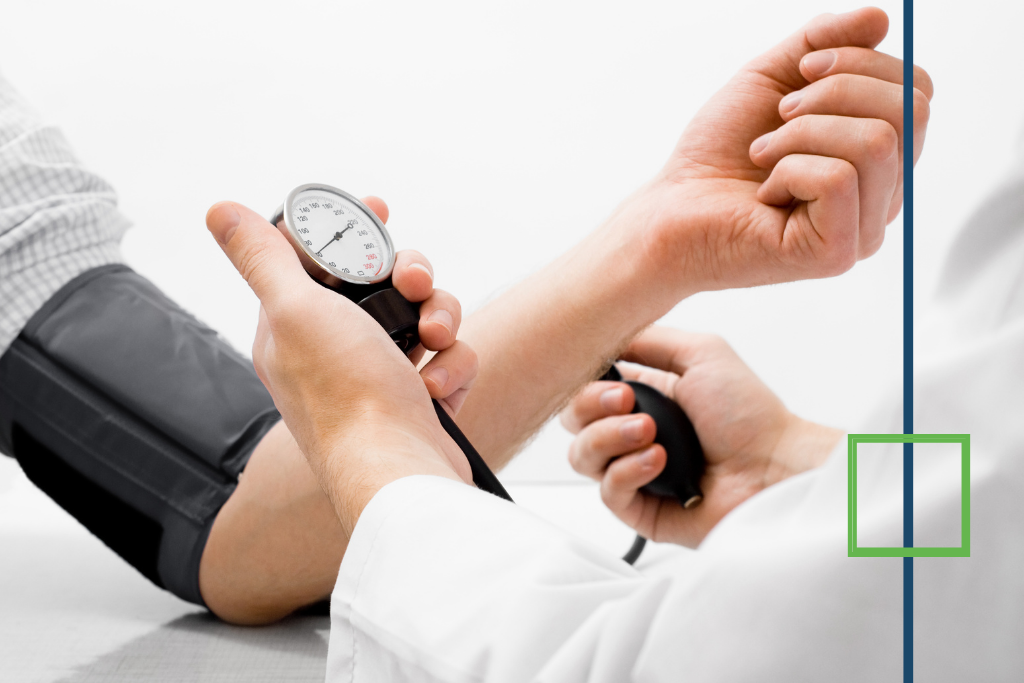What is Lexapro?
Escitalopram (marketed as Lexapro) is included in the class of drugs called selective serotonin reuptake inhibitors (SSRIs) [1]. This class of drugs is used to treat depression, anxiety, and other mood disorders. It is an antidepressant prescription drug that works by boosting levels of a natural substance in the brain called serotonin. Serotonin, known as the “happy” neurotransmitter, signals an increase in feelings of happiness or well-being. It’s released into the spaces between your brain cells (synapses) in order to transmit this “happiness” signal through your brain and central nervous system.
Lexapro is a prevalent antidepressant, possibly one of the most frequently prescribed in the United States. Therefore, it is essential to be aware of the symptoms of Lexapro detox withdrawal. In addition to treating depression, this drug is also prescribed for anxiety disorder, panic disorder, and obsessive-compulsive disorder. SSRIs have long been associated with withdrawal symptoms. While medical professionals still refer to these symptoms as antidepressant discontinuation syndrome, many people believe the name minimizes the seriousness of the problem [2].

Lexapro and alcohol should not be combined. Not only can alcohol worsen your mood or anxiety, but combining Lexapro and alcohol might also lead to potentially dangerous side effects. People who have struggled with substance abuse or polydrug abuse in the past may attempt to abuse Lexapro. The medication also has interactions with several drugs, including other prescription medications, so some may try to combine Lexapro to enhance a high from another drug.

Get Your Life Back
Find Hope & Recovery. Get Safe Comfortable Detox, Addiction Rehab & Mental Health Dual Diagnosis High-Quality Care at the We Level Up Treatment Centers Network.
Hotline (877) 378-4154How Lexapro Works
Escitalopram always starts working on the very first day of intake. In fact, Escitalopram begins significantly inhibiting the reuptake of serotonin within just a few hours of ingesting the first dose.
Although Escitalopram (Lexapro) substantially modifies neurotransmission on the first day of treatment, this does not automatically mean that users will derive therapeutic benefit – or even notice that the medication is “working.”
While a small percentage of Escitalopram users may respond to the medication rapidly (e.g. on the very first day of treatment or within several days of treatment initiation), most will not notice Escitalopram working immediately.
It is most common for Escitalopram users to notice the medication working (or alleviating medical symptoms) after several weeks of daily administration – usually between weeks 4 and 8 of treatment. Moreover, some individuals may require more than 8 weeks to notice that Escitalopram has taken effect.
Can You Drink Alcohol While Taking Lexapro?
While the struggle of depression and anxiety can be difficult to manage, the clear answer to this question is, no. The combination of Lexapro and alcohol should be avoided due to potentially dangerous side effects. Even a small amount of alcohol can lead to a large number of unpleasant effects. Mixing these two substances may actually lead to heightened symptoms of depression and anxiety.
By taking Lexapro, you’re given a sense of relief. The medication helps you function in normal, everyday life by blocking severe symptoms of anxiety or depression. But by drinking on Lexapro, you actually decrease the effectiveness of the medication, which can make your anxiety or depression worse.
If you are trying to decide if you should have that drink, just think to yourself: is that worth losing your safety net? Is it worth the increased risk of depressive or anxious thoughts or behavior? Once you’ve answered that question, it’s time to think about the potential side effects.
Mixing Lexapro and Alcohol
When mixing any two substances, there is always a danger of potential side effects. This is especially true when mixing an antidepressant such as Lexapro and alcohol. Lexapro can cause side effects. But the side effects that you get may vary from someone else’s. Drinking alcohol can also lead to more and different side effects, and risks when combined with the drug.
Additionally, anxiety and depression can worsen when using alcohol and Lexapro together. This is because alcohol can lower the ability of Lexapro to treat the symptoms you are taking the drug for. As a result, it is best to avoid alcohol to ensure that Lexapro is working to its fullest potential.
Dangers and Risk Factors of Mixing Escitalopram and Alcohol
Risk to Mental Health
When Lexapro is coupled with alcohol, mental and emotional instability might be seen, leading to more severe depression or anxiety, as well as suicidal thoughts. Furthermore, the anger or violent behavior that this process can cause might lead to rash or even dangerous decisions that harm oneself or others.
Risk to Liver
Antidepressants may put your liver at risk if you drink while on them. When you combine alcohol with antidepressants, the liver cannot absorb all of the toxins present. It results in deadly poisoning, according to the National Alliance on Mental Illness. According to research, antidepressant-related liver damage has been associated with drinking while on antidepressants. It’s yet unclear how Lexapro affects the liver in particular.

Risk to Heart
Both alcohol and Lexapro increase heart rate, which can lead to life-threatening conditions such as heart failure, particularly in those with high blood pressure. It’s unknown whether Lexapro combined with alcohol causes long-term heart problems.
Risk of Serotonin Syndrome
When you mix Escitalopram (Lexapro) with alcohol, a disorder called serotonin syndrome can arise, but it’s rare. Serotonin syndrome occurs when the brain has an excess of serotonin. Lexapro enhances serotonin levels in the brain. Alcohol produces a transient increase in serotonin levels when combined with Lexapro, leading to this fatal illness.
Get Help. Get Better. Get Your Life Back.
Searching for Accredited Drug & Alcohol Rehab Centers Near You? Or Mental Health Support?
Even if you have failed previously, relapsed, or are in a difficult crisis, we stand ready to support you. Our trusted behavioral health specialists will not give up on you. Call us when you feel ready or want someone to speak to about therapy alternatives to change your life. Even if we cannot assist you, we will lead you wherever you can get support. There is no obligation. Call our hotline today.
FREE Addiction Hotline – Call 24/7Lexapro and Alcohol Interaction
Alcohol can increase the nervous system side effects of escitalopram such as dizziness, drowsiness, and difficulty concentrating. Some people may also experience impairment in thinking and judgment. You should avoid or limit the use of alcohol while being treated with escitalopram. Do not use more than the recommended dose of escitalopram, and avoid activities requiring mental alertness such as driving or operating hazardous machinery until you know how the medication affects you.
Mixing alcohol and Lexapro will affect each person differently. The dosage you take may also play a role. Those who take the maximum dosage for depression (20mg of Lexapro) may be at an even higher risk of experiencing side effects or complications from drinking alcohol.
There is some evidence that antidepressants like Lexapro might lead to an increase in suicidal thoughts and behaviors, particularly in children, adolescents, and young adults. It’s most likely to occur during the first few months of treatment or when a physician changes the dosage. Since alcohol can worsen depression, drinking while on Lexapro may increase this risk even more.
Side Effects of Lexapro and Alcohol
Lexapro by itself has a few side effects such as drowsiness, dry mouth, and constipation. But once alcohol enters the equation, things become more dangerous. Generally, medical advice recommends not drinking at all while on SSRIs. In fact, the negative side effects become gradually more severe with each drink you take.
To get an idea of the danger, take a look at these Lexapro and alcohol side effects:
- Increased anxiety
- Worsening depression
- Decreased effectiveness of medication
- Nausea
- Lack of energy
- Liver problems
- High blood pressure
- Suicidal thoughts
First-class Facilities & Amenities
World-class High-Quality Addiction & Mental Health Rehabilitation Treatment
Rehab Centers TourRenowned Addiction Centers. Serene Private Facilities. Inpatient rehab programs vary.
Addiction Helpline (877) 378-4154Proven recovery success experience, backed by a Team w/ History of:
15+
Years of Unified Experience
100s
5-Star Reviews Across Our Centers
10K
Recovery Success Stories Across Our Network
- Low Patient to Therapist Ratio
- Onsite Medical Detox Center
- Comprehensive Dual-Diagnosis Treatment
- Complimentary Family & Alumni Programs
- Coaching, Recovery & Personal Development Events
Serotonin Syndrome
As mentioned above, Lexapro treats depression by boosting serotonin levels. Alcohol can also cause a temporary increase in serotonin. When your brain contains too much serotonin, you may develop serotonin syndrome. This condition causes symptoms such as:
- Restlessness
- Diarrhea
- Nausea and vomiting
- Increased body temperature
- High blood pressure
- Fast heartbeat
- Abnormal eye movements
- Hallucinations (seeing, hearing, or feeling things that aren’t there)
Serotonin syndrome can lead to permanent organ damage or death when left untreated.
Lexapro and Alcohol Blackouts
Some experts have raised concerns that even moderate drinking while on an antidepressant-like Lexapro may cause an exaggerated response to alcohol in some people. This includes violence, inhibition, and memory loss in about half of the cases. While most healthy adults do not experience this, experts are unsure why it occurs and which patients are at greater risk of it happening.
World-class, Accredited, 5-Star Reviewed, Effective Addiction & Mental Health Programs. Complete Behavioral Health Inpatient Rehab, Detox plus Co-occuring Disorders Therapy.
CALL (877) 378-4154End the Addiction Pain. End the Emotional Rollercoaster. Get Your Life Back. Start Drug, Alcohol & Dual Diagnosis Mental Health Treatment Now. Get Free No-obligation Guidance by Substance Abuse Specialists Who Understand Addiction & Mental Health Recovery & Know How to Help.
Alcohol Addiction Treatment
Detox is often considered the first stage of treatment. It will help you navigate the complicated process of alcohol withdrawal, but it doesn’t address patterns of thought and behavior that contribute to alcohol use. Various treatment approaches and settings can help provide the ongoing support necessary to maintain long-term sobriety after you complete detox.
Cravings are very common during detox and can be challenging to overcome. This often leads to relapse. Constant medical care provided during inpatient treatment helps prevent relapse. Clinicians can provide necessary medication and medical expertise to lessen cravings and the effects of alcohol withdrawals.
Medication-Assisted Treatments
Medication-Assisted Treatments (MAT) for alcohol use disorder and mental health disorder are commonly used in conjunction with one another. This includes the use of medications and other medical procedures. During your rehab, the staff from your treatment facility will help you identify what caused your addiction and teach you skills that will help you change your behavior patterns and challenge the negative thoughts that led to your addiction. Sometimes, the pressures and problems in your life lead you to rely on substances to help you forget about them momentarily.
Integrated Mental Health Care
Alcohol affects mental health, so people may use it to self-medicate undiagnosed disorders. Rehab centers typically provide mental health screenings, diagnoses, and integrated treatment for co-occurring disorders. In addition, holistic and therapeutic approaches are often used to treat recovering addicts with these conditions.
Behavioral Therapies
Cognitive Behavioral Therapy (CBT) and Dialectical Behavioral Therapy (DBT) can improve addicts’ behavior. CBT targets negative and maladaptive thought patterns as it promotes positive emotions and beliefs, while DBT helps clients address conflicting impulses so they can make healthy choices. Both therapies treat substance abuse and mental health disorders. Therapy also empowers clients to identify, avoid and mitigate cues that trigger drug cravings.
Individual and Group Counseling
Addiction and mental health counseling occur in both individual and group settings. One-on-one treatment sessions may address unresolved trauma, unconscious conflicts, and specific struggles, while group sessions often involve training in life skills, stress management, conflict resolution, and social connections. Group counseling also gives clients the chance to share their thoughts and experiences to develop social support, which is essential for lasting recovery
If you or someone you know is experiencing side effects of Lexapro and alcohol withdrawal and addiction, it is important to intervene early. We Level Up NJ has addiction specialists that are standing by to help.

Experience Transformative Recovery at the We Level Up Treatment Center.
See our authentic success stories. Get inspired. Get the help you deserve.



Start a New Life
Begin with a free call to an addiction & behavioral health treatment advisor. Learn more about our dual-diagnosis programs. The We Level Up treatment center network delivers various recovery programs at each treatment facility. Call to learn more.
- Personalized Care
- Caring Accountable Staff
- World-class Amenities
- Licensed & Accredited
- Renowned w/ 5-Star Reviews